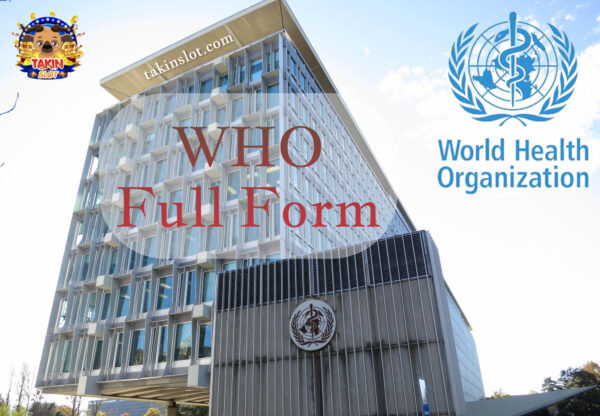Delving into the Global Health Guardian: WHO’s Role in Shaping Public Health
Who Full Form: In a world fraught with health challenges, the World Health Organization (WHO) stands tall as a beacon of hope. Nestled within the United Nations (UN), it champions the cause of global public health with unwavering dedication. Let’s embark on a journey to unravel the enigma behind this paramount organization and understand its pivotal role in shaping our world’s health landscape.
Who is the WHO: Who Full Form
Ever heard of the guardian angel of global health? That’s WHO for you! Renowned worldwide for its tireless efforts in promoting health and well-being across nations. Despite its global stature, WHO actively engages in local medical initiatives, spreading awareness about diverse diseases, and promptly addressing critical health concerns.
What Does the WHO Do?
WHO is not just another acronym; it’s a powerhouse of progress in public health. Through relentless research, it’s paving the way for enhanced medical accessibility and raising awareness about various health issues. Collaborating closely with national governments, WHO (Who Full Form) tackles health challenges head-on while maintaining a comprehensive global health incident database.
Who Does the WHO Work For?
WHO’s heart beats for humanity. Its primary mission? To alleviate suffering and halt the spread of diseases through international cooperation. While its research may often spotlight the Western world, make no mistake; WHO’s reach spans the globe, fueled by a diverse team working towards a common goal.
What is the WHO’s Purpose?
Picture WHO as a guardian, shielding us from the onslaught of diseases. Its mission? Empowering individuals to lead healthy lives by combating diseases, implementing preventive measures, and fortifying healthcare infrastructure. From AIDS to heart diseases, WHO strategizes and implements screening programs to tackle major health concerns head-on.
How Does the World Health Organization Work?
From grassroots campaigns to operating healthcare centers, WHO leaves no stone unturned in its quest for better global health. It orchestrates various initiatives aimed at educating communities on disease prevention while striving to elevate healthcare standards worldwide.
History of the WHO: Who Full Form
Rewind to 1946, a pivotal moment in global health history. Triggered by former US President Harry Truman’s initiative, WHO emerged as a bulwark against global health crises. Since its inception, it’s been at the forefront of battling infectious diseases and championing public health initiatives globally.
The WHO in Action: Who Full Form
In the arena of global health, WHO reigns supreme. With a laser focus on disease elimination, it crafts cost-effective methods for disease detection and reporting, offering solutions to myriad health challenges worldwide. WHO doesn’t just talk; it acts, saving lives and shaping a healthier future for all.
Conclusion
As we bid adieu, let’s tip our hats to WHO, (Who Full Form) the unsung hero of global health. With unwavering dedication, it continues to spearhead initiatives aimed at enhancing public health outcomes and curbing infectious diseases. In a world fraught with uncertainties, WHO remains our steadfast guardian, safeguarding the well-being of millions worldwide.
FAQs about Who Full Form
How can I contribute to WHO’s mission?
You can support WHO’s endeavors by staying informed, advocating for public health measures, and donating to their cause.
Is WHO’s work limited to specific regions?
No, WHO operates globally, addressing health issues irrespective of geographical boundaries.
Does WHO solely focus on infectious diseases?
While infectious diseases are a priority, WHO also addresses non-communicable diseases and various health-related challenges.
Can individuals access WHO’s resources?
Absolutely! WHO provides a wealth of resources and information accessible to individuals worldwide.
How does WHO ensure accountability in its operations?
WHO upholds transparency and accountability through rigorous monitoring and evaluation mechanisms, ensuring efficient use of resources and optimal outcomes.




